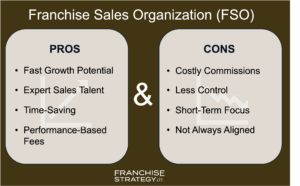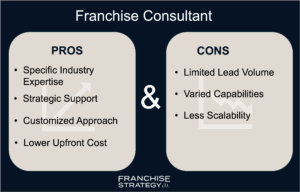Table of contents
How can I franchise my business? This guide breaks down every step: evaluating your business, preparing legal documents, and creating a franchise system. Start your franchising journey here.
Key Takeaways
-
Franchising allows rapid brand expansion with reduced capital risk as franchisees invest their own funds, but it involves relinquishing some operational control.
-
A successful franchise requires a proven business model, thorough market research, financial stability, and well-prepared legal documents like the Franchise Disclosure Document (FDD) and Franchise Agreement (FA).
-
Building a strong franchise system includes developing comprehensive training programs, ongoing support for franchisees, and implementing effective marketing strategies to attract qualified franchise candidates.
Understanding Franchising Basics
Franchising is more than just a business model; it’s a strategic way to expand your brand’s reach and create new revenue streams. Essentially, franchising allows you, the franchisor, to grant franchisees the right to operate under your brand, using your trademarks, operational methods, and business systems. This relationship is defined by key documents, namely the franchise disclosure document (FDD) and the franchise agreement, which outline the rights, obligations, and operational guidelines for both parties.
One of the primary benefits of franchising is the potential for rapid expansion without the need for significant capital outlay from the franchisor. Franchisees invest their own capital to open new locations, which can lead to increased system-wide sales, economies of scale, and a stronger brand presence.
However, it’s important to note that franchising also involves relinquishing some control over day-to-day operations, as franchisees operate independently.
Franchising vs. Licensing: Key Differences
While both franchising and licensing involve granting rights to use a brand or product, they are fundamentally different in terms of control and structure. Franchising offers more control over business operations, as franchisees are required to follow specific guidelines and procedures outlined in the franchise agreement and operations manual. This ensures consistency and quality across all franchise locations.
On the other hand, licensing typically involves granting the right to use a product or technology without the same level of operational control. This can lead to greater variability in how the brand is represented and operated.
Therefore, for business owners looking to maintain a high degree of control over their brand and operations, owning their own business through franchising is generally the preferred route.
Franchising vs. Licensing Table
| Franchising | Licensing | |
| Pros |
|
|
| Cons |
|
|
Evaluating Your Business for Franchising
Before diving into the franchising process, it’s crucial to evaluate whether your business is ready for such a transition. A successful franchise requires a well-defined and proven business model, a strong market demand, and financial stability.
This evaluation will help ensure that your business is capable of supporting franchisees and scaling effectively.
Proven Track Record
A proven business model attracts potential franchisees and ensures their success. A strong track record demonstrates that your business concept works and can be replicated across different locations. This not only reduces the risks for franchisees but also enhances the overall brand reputation. Consistent revenue growth, a loyal customer base, and successful expansion to multiple locations are key indicators of a proven business model.
Market research is another critical component of establishing a proven track record. Understanding consumer demand and identifying potential competition are crucial steps in ensuring that there is a market for your franchise. Thorough market research allows you to competitively position your franchise offering and attract suitable franchisees.
Market Research and Demand
Thorough market research is essential to confirm demand for your franchise opportunity. This involves analyzing potential competition, understanding consumer preferences, and identifying new markets where your franchise can thrive.
Ongoing market assessment will help you adapt your franchise strategy to evolving market conditions and ensure long-term success.
Financial Stability
Financial stability is a cornerstone of a successful business in franchising. Your business should have consecutive years of profitability and a strong operational history. This signals to potential franchisees that your business is financially healthy and capable of supporting their investment.
Detailed financial planning, including audited financial statements, will also help secure financing from lenders and ensure the future profitability of your franchise.
Preparing Legal Documents
Preparing the necessary legal documents is a critical step in the franchising process. The Franchise Disclosure Document (FDD) and the Franchise Agreement (FA) are essential for defining the franchising relationship and ensuring compliance with legal obligations.
These documents outline the rights, responsibilities, and operational guidelines for both the franchisor and franchisee, providing a clear framework for the franchise system.
Protecting Intellectual Property
Protecting your intellectual property is essential to ensure that franchisees can brand according to guidelines and reduce risks. This involves registering your trademarks, business names, and logos with the applicable trademark office such as the United States Patent and Trademark Office (USPTO) to safeguard your brand.
Trademark registration is vital in franchising as it protects the brand’s trademarks and prevents legal conflicts, ensuring a consistent and protected brand identity.
Drafting the Franchise Disclosure Document (FDD)
The Franchise Disclosure Document (FDD) is a legal document required to franchise and sell franchises. It serves as a pre-sales disclosure to inform potential franchisees about the offered opportunity and must contain 23 specific sections as per FTC regulations. These sections include key player introductions, operating terms, financial statements, and legal obligations. Providing franchise disclosure documents to prospective franchisees ensures compliance with FTC regulations before selling a franchise.
The FDD will provide only limited disclosure about the operations manual, such as its table of contents and page count. This confidentiality is maintained to protect the proprietary information and operational methods that are critical to the franchise’s success.
Creating the Franchise Agreement
The franchise agreement is a legal contract that outlines the relationship between the franchisor and franchisee. It includes essential operational and financial obligations, defining expectations for franchise operations.
A franchise attorney is vital for preparing a comprehensive franchise agreement that ensures legal compliance and sets clear guidelines for the franchise relationship.
Developing Your Franchise System
Developing a robust franchise system involves creating a replicable business model that can be efficiently duplicated by franchisees. This includes providing operational guidance through an operations manual and a training program to ensure consistency and efficiency across all franchise locations.
Effective franchise development solutions are essential for the long-term success of the franchise system.
Creating an Operations Manual
The franchise operations manual is a crucial document that describes the day-to-day operations of the franchise. Its purpose is to guide franchisees and communicate system standards, ensuring consistency and quality across all locations.
Franchisees are responsible for following the obligations laid out in the operations manual, which, while not a legal document, is essential for maintaining operational standards.
Setting Up Training Programs
Comprehensive training programs are key to franchisee success. These programs ensure that franchisees are well-versed in the latest operational procedures and customer service standards. Key staff, such as trainers, marketing assistants, and franchise-process managers, play a vital role in supporting franchisees and ensuring that they are equipped to run their franchises effectively.
Ongoing Support for Franchisees
The goal is to be a partner in solving operational challenges and driving franchise success. This can include online resources, community engagement, in-field visits, conferences, and regular communication to share experiences and solutions. This type of support helps maintain quality control and fosters an environment of continuous improvement. By providing support, franchisors can ensure that franchisees are well-equipped to handle challenges and achieve success in their respective markets.
Registering and Filing Requirements
Navigating the registration and filing requirements is a critical step in the franchising process. Franchise operations at the federal level are regulated by the Federal Trade Commission (FTC), and the Franchise Disclosure Document (FDD) must include audited financial statements of the franchise company.
Depending on the state, additional registration or filing requirements may apply, making it essential to consult a franchise attorney to ensure compliance.
Filing the Franchise Disclosure Document
Once you complete and issue the FDD, the next step is to register and file it with the appropriate authorities. This process varies by state, with some requiring specific registration or filing of the FDD. Consulting a franchise attorney is crucial to navigate these state-specific requirements and ensure compliance.
After submitting the FDD, authorities will critique the document and may require additional disclosures before approval.
Trademark Registration
Securing trademarks and copyrights is crucial for safeguarding your brand identity before entering franchising. Registering your trademarks with the USPTO helps prevent others from using a similar brand, which can lead to confusion and diluted brand identity.
This step is essential for protecting your brand and ensuring that franchisees can operate under a consistent and protected brand name.
Building a Franchise Sales Strategy
Building a robust franchise sales strategy is essential for attracting and recruiting the right franchisees. This strategy should be based on your unique business model, community characteristics, and growth objectives. Set realistic business goals for franchising and develop a thorough marketing strategy to attract quality leads.
Identifying key attributes of your ideal franchisee and utilizing trade shows or events can enhance visibility and attract prospective franchisees.
Identifying Ideal Franchisees
lass=”ai-optimize-83″>Identifying and validating the right franchisees is crucial for the success of your franchise system. Look for prospective franchisees who have the resources, commitment, and alignment with your brand values.
Developing agreements for both individual and multi-unit franchises can empower franchisees to open multiple locations, contributing to the overall growth and scalability of your franchise system.
Marketing Your Franchise Opportunity
Effectively marketing your franchise opportunity involves clearly articulating your unique offerings and conducting competitor research to position your franchise in the market. A strong marketing strategy should include a compelling franchise sales website, brand storytelling, public relations, and other channels to attract potential franchisees.
By showcasing the advantages of becoming a franchisee, you can draw in qualified leads and fill your franchise sales pipeline.
Utilizing Franchise Brokers
Franchise brokers play a significant role in connecting prospective buyers with suitable franchise opportunities. These intermediaries can help prospective franchisees find franchises that match their interests and financial capabilities, often working alongside franchise consultants.
Working with reputable brokers can enhance your franchise sales efforts by leveraging their market knowledge and networks. Using franchise brokers can lead to improved franchise sales outcomes and a more efficient recruitment process.
Utilizing Franchise Sales Organizations

A Franchise Sales Organization (FSO) is a third-party firm that specializes in recruiting, qualifying, and selling franchise opportunities on behalf of franchisors. In essence, FSOs function as an outsourced franchise development department, offering sales expertise, lead generation systems, and access to industry networks to help brands expand more efficiently.
FSOs typically operate under a commission-based model. Their responsibilities often include creating or refining the franchise sales process, generating and qualifying leads, and managing the franchisee discovery and education journey. They also support the sales funnel through to the signed agreement and provide regular reporting and performance insights.
In addition to sales activities, some FSOs offer marketing support and help with compliance such as Franchise Disclosure Document (FDD) preparation.
Utilizing Franchise Consultants

Franchise consultants—also known as franchise development consultants or franchise experts like Franchise Strategy Co. —are independent professionals or firms that help franchisors grow their systems. While some consultants focus solely on strategic planning, others take a more active role in helping sell franchise locations by connecting brands with qualified candidates, often through their own networks or affiliations with franchise broker groups.
Unlike Franchise Sales Organizations (FSOs), franchise experts typically offer more personalized, high-touch services. They often serve as both strategic advisors and recruiters, working closely with the franchisor rather than replacing the internal development team. Instead, they complement existing efforts by filling specific gaps or offering specialized expertise.
Franchise consultants can support location sales in a variety of ways. They might refine your franchise recruitment strategy, assist with marketing and lead generation, or qualify and present potential franchisees for your consideration. Additionally, they can help prepare your brand to be “sales ready” by ensuring the Franchise Disclosure Document (FDD), unit economics, and marketing materials are in order. Many also provide coaching throughout the discovery and closing process. In some cases, consultants have relationships with broker networks, enabling them to introduce qualified leads directly to your brand.
Financial Considerations
Financial considerations are a critical aspect of franchising your business. The potential costs of franchising can range from under $20,000 to over $90,000, covering various expenses such as legal representation, franchise development, and ongoing support. Understanding these costs and setting appropriate fees and royalties are essential for ensuring the financial viability of your franchise system.
Additionally, exploring financing options can provide the necessary capital to support your franchising efforts.
Initial Franchise Fee and Ongoing Fees
Franchisees typically pay an initial franchise fee and ongoing royalties. The initial franchise fee is a one-time payment that grants the franchisee the rights to operate under the franchisor’s brand and system. Ongoing royalties are usually a percentage of the franchisee’s gross sales, providing the franchisor with a continuous revenue stream. Additionally, franchise fees contribute to the overall cost of operating a franchise.
These fees cover various costs, including start-up costs and ongoing support, and are vital for maintaining a healthy franchise system.
Financing Options for Franchisors
Franchisors have several financing options available to support their franchising efforts. Lenders typically look for strong cash flow, time in business, and good qualifications when considering financing. Options include bank loans, private equity, and franchisor financing. Each option has its advantages and considerations, so it’s essential to evaluate which financing method aligns best with your business goals and financial situation.
Hiring the Right Team
Building the right team is crucial for successful franchise development and operations. This includes hiring key roles such as trainers, marketing assistants, franchise-process managers, and franchise advocates.
These team members play essential roles in training franchisees, developing marketing strategies, and providing ongoing support. A well-rounded team equipped with the right skills is vital for sustaining a successful franchise system and supporting franchisees effectively.
Consultants
At Franchise Strategy Co., we serve as a strategic extension of your team, offering all the benefits of in-house expertise without the overhead of building a full-time franchise department. We specialize in franchise development and operations support, providing comprehensive end-to-end assistance to prepare your business for franchising. From refining your business model and developing your Franchise Disclosure Document (FDD) to designing your recruitment process and onboarding your first franchisees, we guide you through every step with proven expertise.
Role of Franchise Attorneys
Hiring a franchise attorney is crucial for ensuring legal compliance and avoiding costly mistakes. Franchise attorneys help navigate the complexities of franchising laws, draft essential legal documents, and provide guidance on legal disputes.
Choose an attorney who understands your brand and believes in your goals. Legal guidance is essential for preventing issues and ensuring a smooth franchising process.
Key Hires for Your Franchise Company
Key hires for your franchise company include roles such as:
-
Trainer, essential in developing the franchisee onboarding, training, and initial support
-
Franchise Coach, takeover from the trainer and provide ongoing support and business coaching
-
Marketer, create sales materials, maintain website, generate social media content, and drive lead funnel for the franchisee
These team members are crucial for the overall success of your franchise.
Building a strong team with the right skills and experience is critical for maintaining operational consistency and achieving long-term success in your franchise system.
Summary
Franchising your business can be a powerful strategy for growth and expansion. By understanding the basics of franchising, evaluating your business for readiness, preparing essential legal documents, developing a robust franchise system, and building a strong sales strategy, you can set the stage for a successful franchise. Remember, continuous support and a solid team are key to sustaining franchisee success and maintaining the integrity of your brand. Take these steps, and you’re well on your way to turning your business into a thriving franchise.
Frequently Asked Questions
What is the purpose of the Franchise Disclosure Document (FDD)?
The Franchise Disclosure Document (FDD) is essential for informing potential franchisees about the franchise opportunity, as it contains critical information across 23 specific sections mandated by the FTC, including details on financial statements, operating terms, and legal obligations. Understanding the FDD is crucial for making informed investment decisions.
How do I protect my brand when franchising?
To protect your brand when franchising, ensure that you register your trademarks, business names, and logos with the USPTO. This vital step safeguards your brand identity and minimizes legal disputes.
What are the key differences between franchising and licensing?
Franchising provides greater control over business operations with strict adherence to guidelines, while licensing allows for more freedom by granting rights to use a product or technology without extensive operational oversight. Ultimately, choosing between them depends on the desired level of control and support.
How can I ensure the success of my franchisees?
To ensure the success of your franchisees, implement comprehensive training programs and maintain continuous support through accessible resources and regular communication. This collaborative approach fosters a strong support network that empowers franchisees to overcome challenges effectively.
Related Links
Written by: Ron Ramesh


